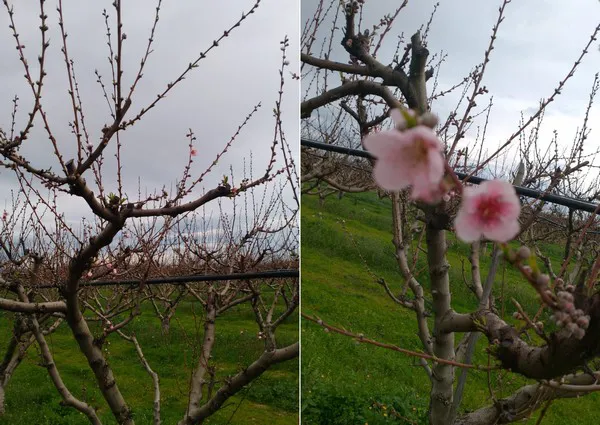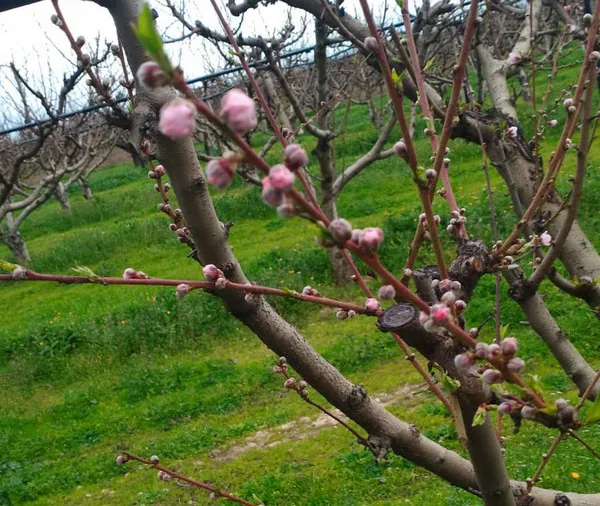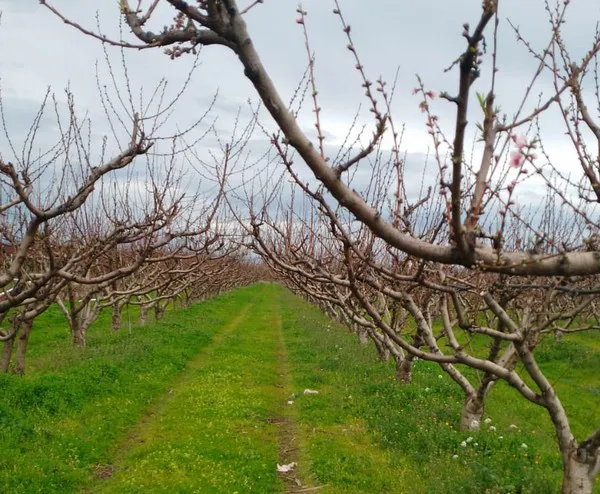Southern Italy has so far lacked the right number of hours of cold weather for peach and nectarine plantings, and higher than average seasonal temperatures have pushed plants of super-early varieties, such as Early Bomba, Flariba, Patagonia and Zincal, into even earlier flowering.
 Flowering Early Bomba nectarine trees (photo: Nicola Bollino)
Flowering Early Bomba nectarine trees (photo: Nicola Bollino)
"We are talking about at least a 20- to 25-day earlier date," explains stone fruit producer Nicola Bollino, whose farm is located in the area between San Ferdinando di Puglia and Trinitapoli, in the region of Apulia.
"The fears of losing all the super-early (and early) production are numerous and rightly felt. Weather forecasts speak of an extreme cold wave coming, and if so, it would be a disaster. After several years in a row in which super-early and early peach and nectarine varieties have been hit by spring frosts, this would be yet another campaign to forget. On many cultivars there are already few buds due to the summer heat."
 Super-early nectarine trees: opening of flower buttons (photo: Nicola Bollino)
Super-early nectarine trees: opening of flower buttons (photo: Nicola Bollino)
Bollino also says that, especially in the area where he operates, the trend in recent years has been to replace super-early and early plantings with medium-late and late varieties, which ripen in the July-August-September period, precisely to avoid possible spring frosts and winter tail blows. "The production of super-early and early peaches and nectarines will, therefore, decrease as we go along. However, producing them this year would already be an achievement."
Price increases and inflation are holding back investments in the sector "The situation is really unstable for the fruit and vegetable sector," continues Bollino. "It is risky now to try to make new investments. I myself, for the first time in years, have not purchased additional land this campaign. First of all, because of the price increases that continue to be registered for the purchase of manure, fertilizer and other means of working the land. We are talking about at least 40 percent more than the increases already counted last year. Secondly, it is impossible to find skilled labor and, in general, workers who are willing to learn."
 Super-precocious nectarine trees in bloom (photo: Nicola Bollino)
Super-precocious nectarine trees in bloom (photo: Nicola Bollino)
"Under these conditions, I decided to devote more care and attention than usual to my 50 hectares, without adding more danger to the already calculated business risk. This year, as much as I can, I will play defense. Quoting the title of a famous Italian comedy film, I can only say '"As for me, let's hope that I survive!" concluded Bollino.
